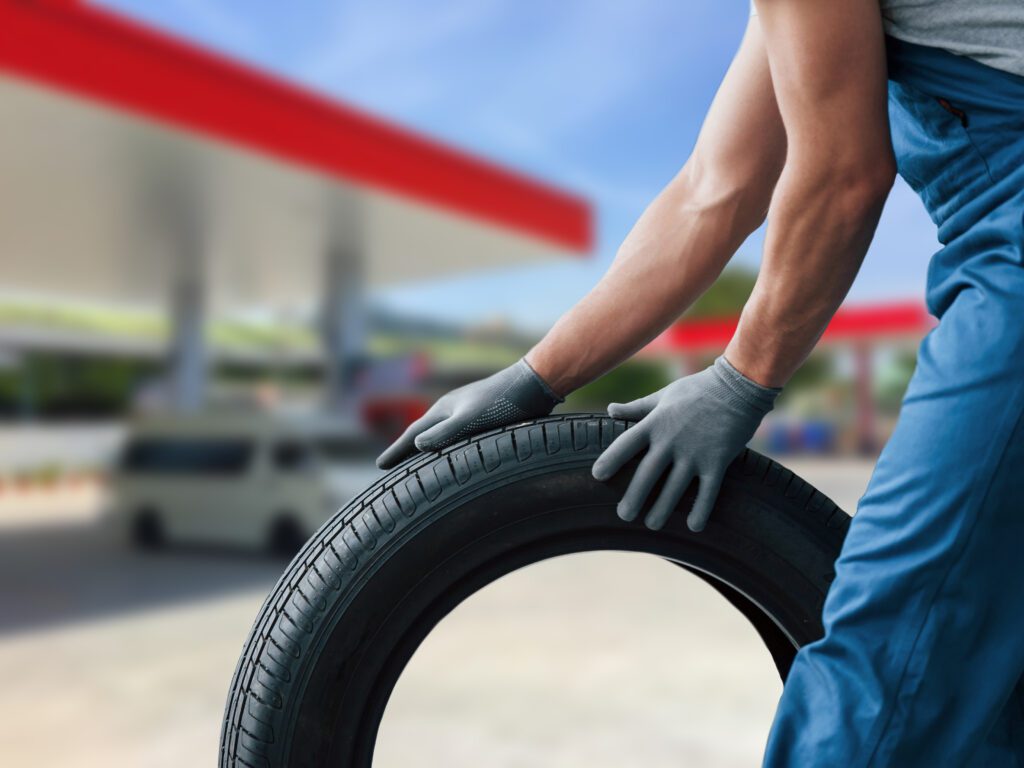In the transportation and logistics industry, fuel efficiency is one of the main concerns for truck drivers and owners. Fuel consumption accounts for an average of 35% to 40% of the total cost of a truck, highlighting the importance of saving fuel. Reducing fuel costs has a significant impact on business profitability. Fortunately, there are measures that can be taken to reduce fuel consumption in trucks, and one of them is how tires can help us save fuel.
The role of tires in fuel efficiency
Tires are a critical component for any vehicle, but in the case of trucks, they have an even more significant role in fuel efficiency. Tires are the only point of contact between the truck and the road, so their selection and maintenance have a significant impact on fuel consumption.
In general, there are two types of tires for trucks: low rolling resistance tires and high rolling resistance tires. Low rolling resistance tires, as the name suggests, offer less resistance while rolling compared to high rolling resistance tires. This characteristic translates into lower energy demand from the engine to move the truck, resulting in higher fuel efficiency and reduced operating costs, such as fuel consumption reduction.
In addition to choosing the right tires, maintaining proper tire pressure is another vital aspect to ensure optimal fuel efficiency. Having tires with the correct pressure allows the truck to roll more efficiently, saving fuel and reducing operating costs. It is essential to follow the manufacturer´s instructions to maintain the appropriate pressures for each type of truck and tire.
It is also important to note that regular tire maintenance is crucial to ensuring optimal fuel efficiency. Worn-out tires with uneven wear or damage increase rolling resistance and decrease fuel efficiency. Regular tire rotations are recommended to ensure even wear and prolong their lifespan.
Low rolling resistance tires
As mentioned earlier, low rolling resistance tires are becoming increasingly popular among carriers and transport companies looking to save fuel and reduce operating costs. These tires are characterized by their special design and material composition that minimizes rolling resistance, thereby reducing the amount of energy needed to move the truck.
Unlike conventional tires, which focus on traction and durability, low rolling resistance tires are specifically designed to maximize fuel efficiency. These tires have a thinner tread and a stiffer carcass, reducing friction between the tire and the road and decreasing rolling resistance.
Furthermore, low rolling resistance tires are made of high-tech materials that also contribute to reducing rolling resistance. For example, some tires use silica in the tread to reduce rolling resistance and improve traction on wet roads.
Although low rolling resistance tires are more expensive than conventional tires, their use can generate significant fuel savings and a significant reduction in operating costs. Some studies have shown that low rolling resistance tires can save up to 6% in fuel compared to conventional tires.
However, it is important to note that low rolling resistance tires may not be suitable for all conditions and transportation applications. For example, low resistance tires may not be ideal for use on wet roads or in winter conditions, so their use must be carefully considered based on the specific use and routes they will be exposed to.
The importance of proper tire pressure
It is one of the simplest actions but demonstrates the most efficiency in achieving fuel savings. In addition to low rolling resistance tires, proper tire pressure is arguably the key factor in improving fuel efficiency in commercial vehicles, including trucks. Tires with inadequate pressure can negatively affect fuel efficiency by 3-5% compared to tires with proper pressure.
When tires have inadequate pressure, rolling resistance increases, and fuel economy decreases. Tires that are not properly inflated increase tire wear and temperature, reducing their lifespan and increasing the risk of tire failure. Additionally, improper tire pressure affects vehicle stability and handling, increasing the risk of accidents.
To ensure that the tires have the proper pressure, it is important to regularly check the tire pressure, at least once a month and before long trips. It is recommended to check the tire pressure when they are cold, as the pressure naturally increases when the tires heat up during driving. To facilitate this monitoring, relying on tools like Flotasnet allows the company to be aware of the condition of each vehicle and maintain control over the fleet.
It is also important to ensure that the tires have the appropriate pressure according to the load the vehicle is carrying. If the vehicle is overloaded, the tire pressure should be adjusted accordingly to ensure safe and efficient driving.
Other ways in which tires can help save fuel:
We have discussed low rolling resistance tires and proper tire pressure, but there are other ways in which tires can help improve fuel efficiency in commercial vehicles, including trucks.
One way is by selecting tires of the appropriate size for the vehicle. Tires that are too large or too small affect fuel efficiency by altering the vehicle´s gear ratio. Therefore, it is important to choose tires that are suitable for the size and load capacity of the vehicle.
In addition, proper tire alignment and balance affect fuel consumption efficiency. Tires that are not aligned or balanced correctly create additional rolling resistance, increasing fuel consumption.
Lastly, but not least, the way the vehicle is driven also affects fuel efficiency, as well as tire wear. Accelerating and braking abruptly, driving at high speeds, or driving with excessive load increase rolling resistance and reduce tire efficiency, resulting in higher fuel consumption for the same distance traveled.
Conclusions:
By implementing various actions such as using appropriate tires, proper alignment, proper tire pressure adjustment, along with efficient driving and fleet management through a fleet manager, there is a direct impact on the fuel consumption of a truck fleet. And we must remember that fuel is the main expense in the transportation industry.



